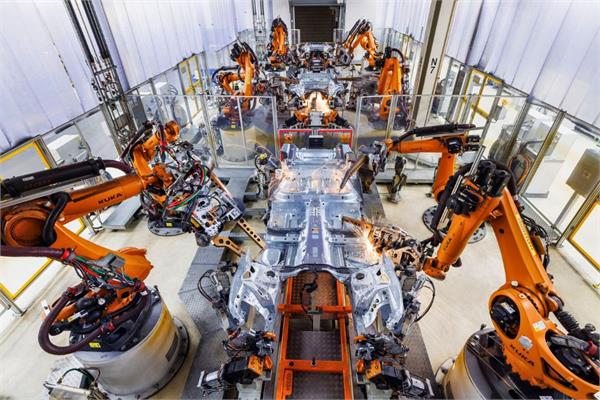
With AI integration accelerating, Audi is setting new standards not only for automotive production efficiency but also for the precision and quality of paints and coatings—critical elements in vehicle durability and aesthetic appeal.
Audi
is harnessing the power of artificial intelligence (AI) to significantly enhance efficiency and quality across its production and logistics operations, with important knock-on benefits for paints and coatings processes. The car manufacturer is fully exploiting AI and data analytics both in its internal workflows and the customer experience, aiming to set new industry benchmarks.
Currently, AI’s greatest impact is in production and logistics, where it helps save both time and costs. Gerd Walker, Member of the Board of Management for Production and Logistics, describes AI as a “game changer” in automotive manufacturing. By strategically deploying AI, Audi is creating a production environment that is more efficient, cost-effective, and quality-driven, while also improving support for employees. This includes expanding AI applications wherever they are viable and beneficial.
More than 100 AI projects are underway in Audi’s production facilities, many gradually being integrated into series production. A key focus is AI-driven quality monitoring, which has direct implications for the paints and coatings stages of vehicle manufacturing. For instance, AI tools are now used to inspect the correct application and labelling of technical data on vehicles—a crucial factor for paintwork conformity and surface treatment accuracy. The “IRIS” image processing system checks label placement and content accuracy, helping to ensure that coating processes align precisely with specifications. This tool alone saves about one minute per vehicle in production time.
Audi is also advancing AI-supported inspections in the body shop, an area closely linked to paint and surface quality. In partnership with Siemens, the company has introduced the “Weld Splatter Detection” (WSD) application, which identifies weld splatter on vehicle underbodies—metal deposits that could compromise paint adhesion and cause defects. From summer 2025, a robotic arm will automatically remove such weld splatter - enhancing production efficiency while improving workplace ergonomics and safety.
The company’s investment in AI is underpinned by a robust data infrastructure, with hundreds of petabytes of production data leveraged to drive its 360factory strategy—a vision for a fully connected, data-driven, and sustainable manufacturing environment. Audi is also using AI beyond production lines, including a new tool called “Tender Toucan” that streamlines the evaluation of supplier bids by automatically analysing specifications, saving up to 30% in processing time. This efficiency will contribute to smoother sourcing of paints, coatings, and related materials.